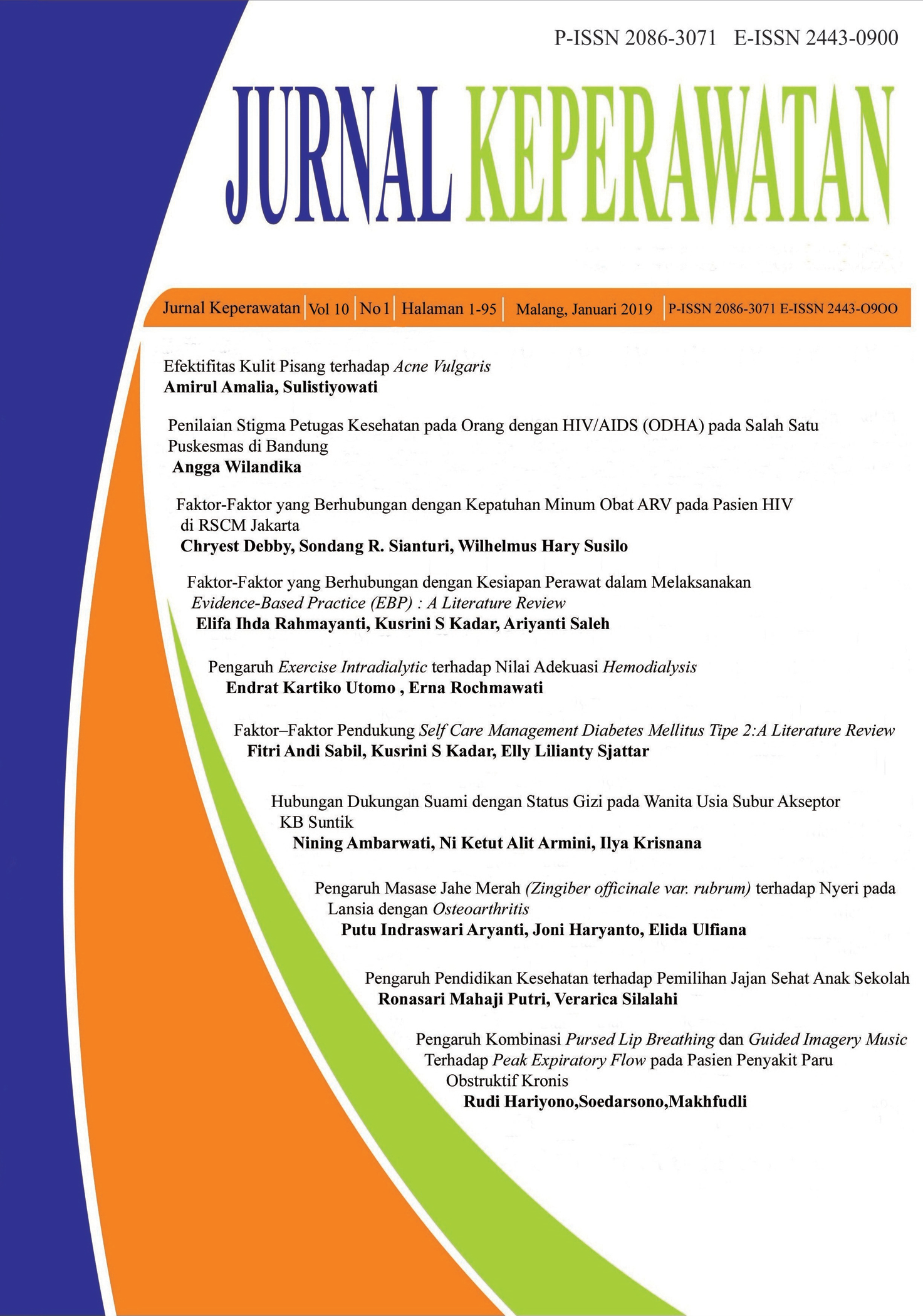The Effect of Banana Skin on Acne Vulgaris
DOI:
https://doi.org/10.22219/jk.v10i1.6061Keywords:
Acne Vulgaris, Kulit Pisang, Remaja PutriAbstract
ABSTRACT
Acne vulgaris is a common inflammatory condition in the pilosebaceous unit that occurs in female adolescents and young adults characterized by blackheads, papules, pustules, nodules. A non-medical treatment is one of intervention which can be done to treat Acne vulgaris. One example of non-medical treatment is herbal therapy using banana skin. Banana skin contains antioxidants, anti-fungus, therefore it can accelerate the healing process, help to lift dead skin cells, and prevent the risk of new acne. This study aimed to determine the effectiveness of banana skin to treat Acne Vulgaris. This research used a pre-experimental with one group pretest and posttest design. The respondents were female adolescents in Gedangan Village Sukodadi Lamongan who include in the inclusion criteria. The data were analyzed using Wilcoxon Tests. The results showed that banana skin was found to be effectively decreased the symptoms of Acne vulgaris (p-value < 0.05). In conclusion, this study are expected to be additional information of the effect of a banana skin on Acne vulgaris in adolescents, and it may provide input for clinicians to manage Acne Vulgaris, especially in female adolescents.
Keyword: Acne Vulgaris, Banana Skin, Female Adolescents
Downloads
Downloads
Published
Issue
Section
License
Authors who publish with this journal agree to the following terms:
- Authors retain copyright and grant the journal right of first publication with the work simultaneously licensed under a Creative Commons Attribution-ShareAlike 4.0 International License that allows others to share the work with an acknowledgment of the work's authorship and initial publication in this journal.
- Authors are able to enter into separate, additional contractual arrangements for the non-exclusive distribution of the journal's published version of the work (e.g., post it to an institutional repository or publish it in a book), with an acknowledgment of its initial publication in this journal.
- Authors are permitted and encouraged to post their work online (e.g., in institutional repositories or on their website) prior to and during the submission process, as it can lead to productive exchanges, as well as earlier and greater citation of published work (See The Effect of Open Access).

This journal is licensed under the a Creative Commons Attribution-ShareAlike 4.0 International License.














